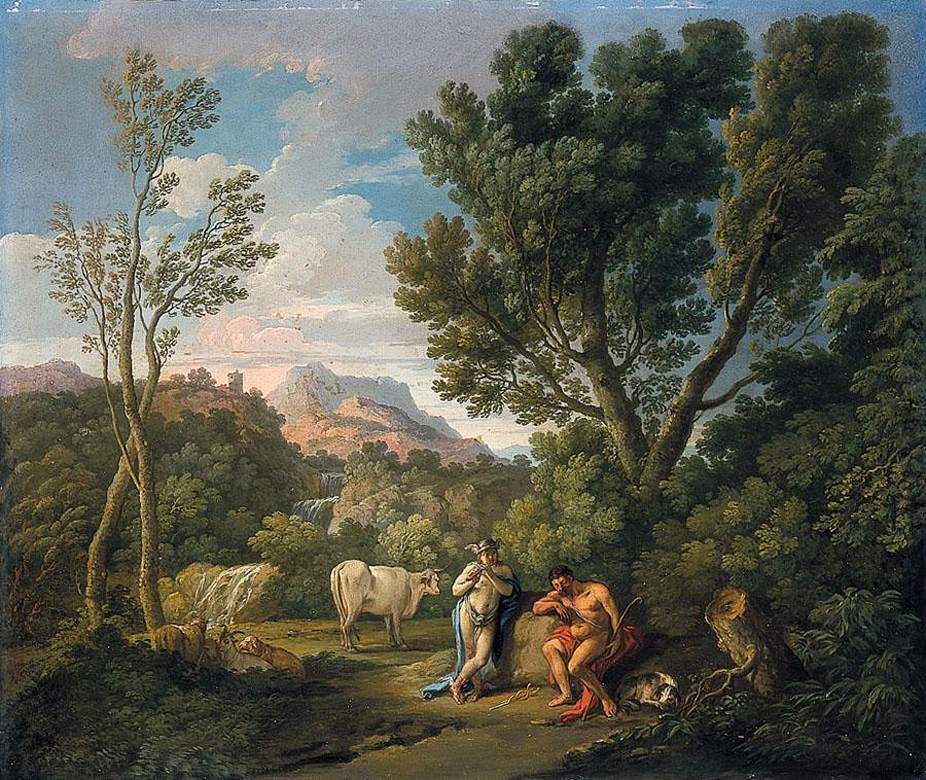Description
Andrea Locatelli's painting Mercury and Argus is a masterpiece of Italian Baroque art. Made in the 18th century, this work is full of details that make it a unique and fascinating piece.
Locatelli's artistic style is characterized by his ability to capture emotion and drama in his works. In Mercury and Argus, we can see how the artist manages to convey the tension and danger felt in the scene. Mercury's figure, with his tense posture and gaze fixed on Argus, conveys a sense of alertness and imminent danger.
The composition of the painting is another interesting aspect. Locatelli uses a diagonal composition to create a sense of movement and dynamism in the work. The figure of Argus, with his body twisted and his head bowed downward, creates a sense of tension and anticipation. Mercury's figure, on the other hand, appears to be about to leap forward, further adding to the sense of danger.
Color is another prominent aspect of the work. Locatelli uses a palette of vibrant and contrasting colors to create a sense of drama and emotion. The deep red of Mercury's mantle contrasts against the deep blue of the sky, while the dark green of the landscape creates a dramatic backdrop for the scene.
The story behind the painting is also fascinating. Mercury and Argus represents the moment when Mercury kills Argus, a hundred-eyed giant who had been sent by the goddess Hera to watch over Io, Zeus' mistress. The story is one of many mythological stories that Locatelli depicted in his works.
In short, Mercury and Argus is a masterpiece of Italian Baroque art that combines exceptional technical skill with emotional and dramatic sensibility. The diagonal composition, vibrant color palette, and mythological story behind the work make it a unique and fascinating piece that continues to captivate viewers to this day.

